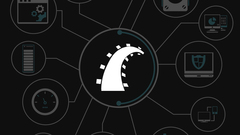Ruby Gems and Advanced Development Features
In this lesson, we are going to talk about Ruby Gems and how we can properly use them in a Rails application.
In this lesson, I'm going to show you how to add multiple new gems to a Gemfile in a Ruby on Rails application.
In this lesson, we are going to learn how to secure our API credentials using the Figaro Ruby gem.
In this lesson, we are going to see how to create a file uploader and explore the different configuration options for building out a Carrierwave upload feature.
With our Carrierwave uploader in place and our credentials saved securely, it's now time to create our AWS S3 API connector.
In this lesson, we are going to begin the process of integrating our uploader with our Task model so that we can upload files from a form in the application to the CDN.
Learn how to manually implement full CRUD functionality into a Ruby on Rails controller through this guide.
As we continue to build out our controller, let's walk through how to add private methods that are accessed only from the specific controller.
In this lesson, we are going to talk about customizing routes and creating nested routes.
In this lesson, we are going to integrate our views to set up a nested form in a Ruby on Rails application.
In this guide, we are going to learn to save values in the backend of a nested resource for a Rails app.
In this lesson, we are going to see if our nesting is working properly and integrated custom redirect routes in the controller.
In this lesson we are going to create an interface between projects and tasks, giving the user an option to add another task directly from the page.
In this lesson, we are going to see how we can list the tasks associated with each project in the show page.
Learn how to integrate conditionals into ERB view templates in a Ruby on Rails application.
Put together the full file uploading video feature into the Ruby on Rails application and get it fully functional.
